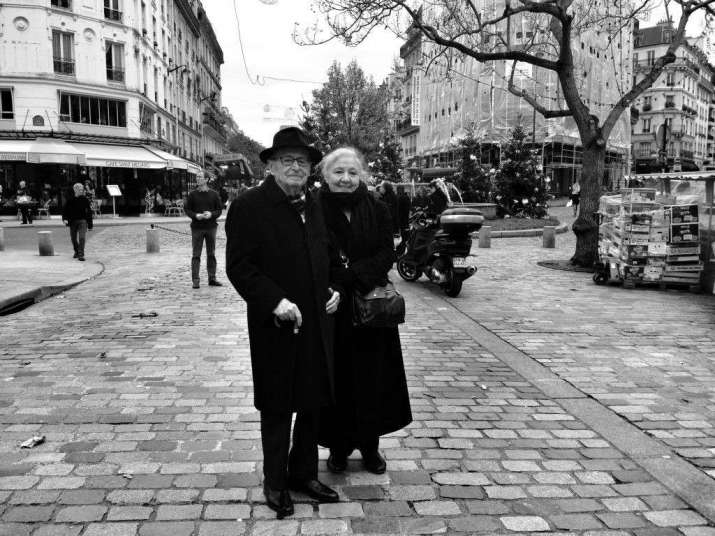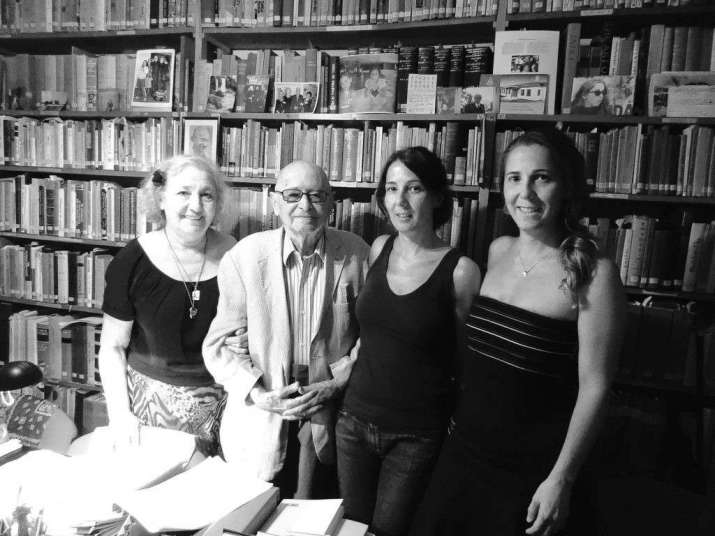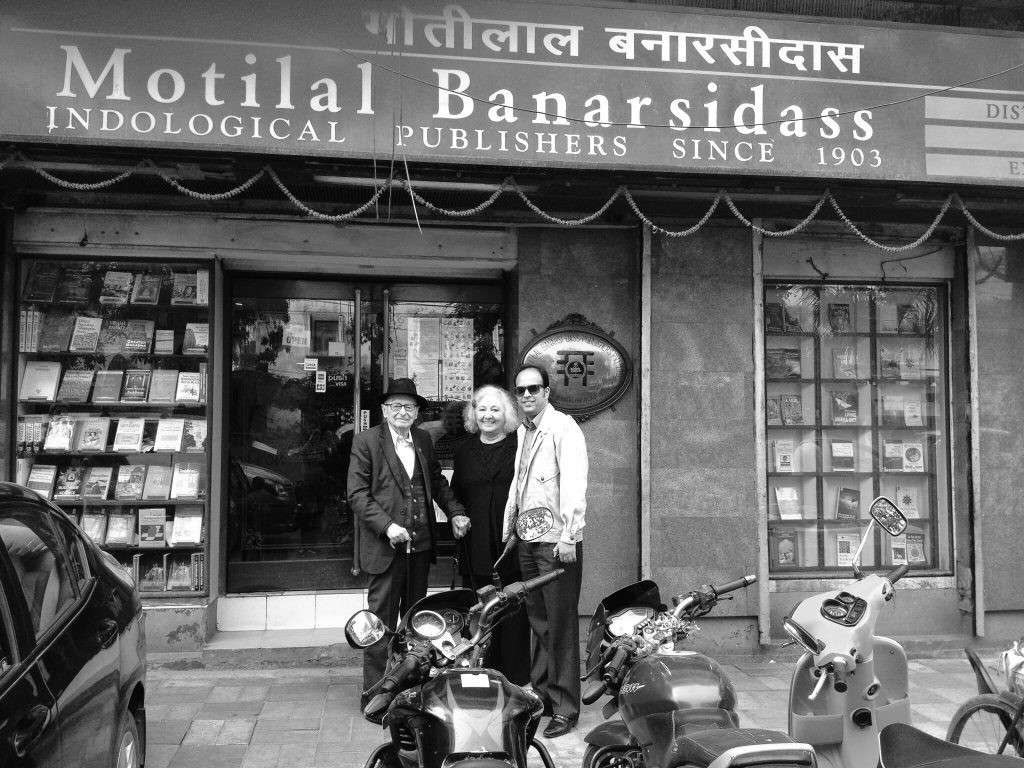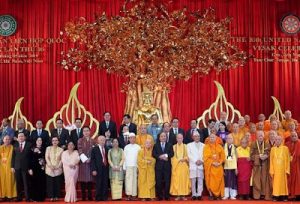This article was originally written for Buddhistdoor en Español. The following is a translation of that article.

Indologists Fernando Tola Mendoza and Carmen Dragonetti Tola devoted their lives to the study of Buddhism and Hinduism, translating fundamental works from both traditions. Their contributions to the Buddhist and academic communities of the Spanish-speaking world are invaluable. Fernando Tola died on 18 July 2017 in Argentina surrounded by family and friends. Now, nearly three years later, we will briefly summarise his career and that of his wife and collaborator Carmen Dragonetti, who was also a senior researcher at Argentina’s National Scientific and Technical Research Council (CONICET).
I have worked at the Foundation-Institute of Buddhist Studies since 2017, a work space created by this scholarly couple at CONICET in December 1989. Given how close I was to the Tola family, my aim in this article is to offer an intimate and academic look at their oeuvre—although I am aware that there is a proliferation of articles with which one can deepen one’s knowledge of their vast works. The photographs here are courtesy of Florencia, one of the couple’s daughters. In the photographs they are depicted at work in Argentina as well as at the Banarsidass Publishing House in India and in Paris, the city to which they always loved to return.
Fernando and Carmen’s greatest contribution was in their translation of a large number of writings essential to Buddhism and Hinduism, from their original languages to Spanish. To do so, they required knowledge of Hindi, Pali, and Sanskrit, although the couple also knew other languages, including Chinese, English, French, German, Greek, Japanese, Latin, ancient Persian, and Tibetan. For many years before this, the translations that had come into the hands of Spanish speakers were translations of translations that had originally been made to English or to French from the original language. Fernando and Carmen’s work also made contributions that had never before been translated into Spanish.
Their paths converged in 1962, when Carmen traveled to Peru—Fernando’s country of origin—to conduct research under Fernando’s leadership at the Institute of Asian Languages and Cultures in the Faculty of Literature at the National University of San Marcos. Since then they have been a couple, working persistently and forming a family with two daughters—who are now CONICET researchers—Florencia and Eleonora Tola.

Image courtesy of Florencia Tola
The first works published by Dr. Fernando Tola were the hymns of the Rig Veda in 1968. He devoted 85 years of study and dissemination of the culture of India and—at 100 years old—was recognised in New Delhi with the Sanskrit Award and Indologist Award by the Indian government, in recognition of his role as an “outstanding Indologist due to his studies on India and the Sanskrit language.” The first book that Fernando Tola and Carmen Dragonetti published jointly was Yoga and Mysticism of India, which has been republished by Editorial Las Cuarenta (Argentina) and will soon be on sale. We include part of the preface written by their daughters, which reads:
Speaking of them is to speak of an intellectual legacy that arose and culminated in a gesture of love, deep friendship, and rapport to which we have been witnesses and privileged parties throughout our own lives. The republication of this book is also a gesture of love and a homage in which the immense work behind it of the genuine knowledge of Buddhist philosophy is inevitably intertwined with the generosity and humility of two beings who found their place in transcendence without believing in it.
Their words are a wonderful summary of the history of Fernando and Carmen, and of the enormous body of work that they tirelessly left for the world.
They wrote close to 223 articles for scientific journals throughout the world, as well as some 38 books, several of which have been republished multiple times. They include translations into Spanish of texts suxh as the Dhammapada, Lotus Sutra of the True Doctrine, The Udana, and The Five Mahayana Sutras, to name just a few, as well as several books that deepened their studies of Indian philosophy and literature beyond the actual translations of the texts. The Lotus Sutra is particularly relevant because it is the very first translation to a modern Western language that was undertaken in this century.

After the deaths of Fernando and Carmen, the Bodhiyana Foundation, run by Shifu Zhihan, took charge of the significant library specializing in Spanish-language Buddhism texts that these scholars created during a lifetime of work. At present, the Bodhiyana Foundation is seeking new offices to which to transfer the library and make it available to the general and specialized public who wish to consult it. To do so, the foundation has spent years systematizing, digitizing, and organizing the books and scientific journals, following the organisational logic Fernando and Carmen created when they came up with the idea. Further, with a plan for at least the majority of the library to be digitally conserved and consulted, Antonela dos Santos and I continue to work on the digitization of the texts so that they can be available online, and we are also assisting with the entire moving process that is still underway. Shifu Zhihan has the intention of keeping the library’s material nature and its organization as it was designed and created by the scholars to also conserve the working spirit they espoused throughout their lives.
To conclude, as written in the postface of the last book published by Fernando and Carmen, the Vimalakīrtinirdeśa (Dharma Translation Organization 2018), alluding to their deaths and written by their daughters, Florencia and Eleonora, we cite this verse from the Tipiṭaka Pāli:
All things are impermanent in truth,
Their nature is to arise and disappear.
Having arisen, they disappear,
The cessation of both is happiness.
With the deepest admiration for their intellectual works, we bid them farewell, we remember them and pay homage to them.
Belén Azarola is an anthropologist at the University of Buenos Aires (Argentina), specializing in Tibetan Buddhism and working on topics connected to translation in the transmission of the Dharma, the personal transformation that takes place through practice, and the reflection on individual and dividual notions. She studied the philosophy of art and ethnomusicology at the Paris Sorbonne IV (France) and garden design at the Pampa Infinita School (Argentina). Azarola works with the writings of Indologists Fernando Tola and Carmen Dragonetti. She taught at the University of Buenos Aires and was an intern at UNESCO (France). She has participated in several scientific conferences and congresses in Latin America and has been a member of Argentine research teams since 2011 (UNESCO, CONICET, UBA).












Thank you for this beautiful article en hommage to these great research era and authors.
I discovered their work through Patanjali sutras in the national Library of Spain and have visited the National Library of Argentina today to learn more. I’m looking forward to read materials that are not yet available in Europe.
Thank you for your work of digitalising their books. Could you please keep me up to date of the progress?